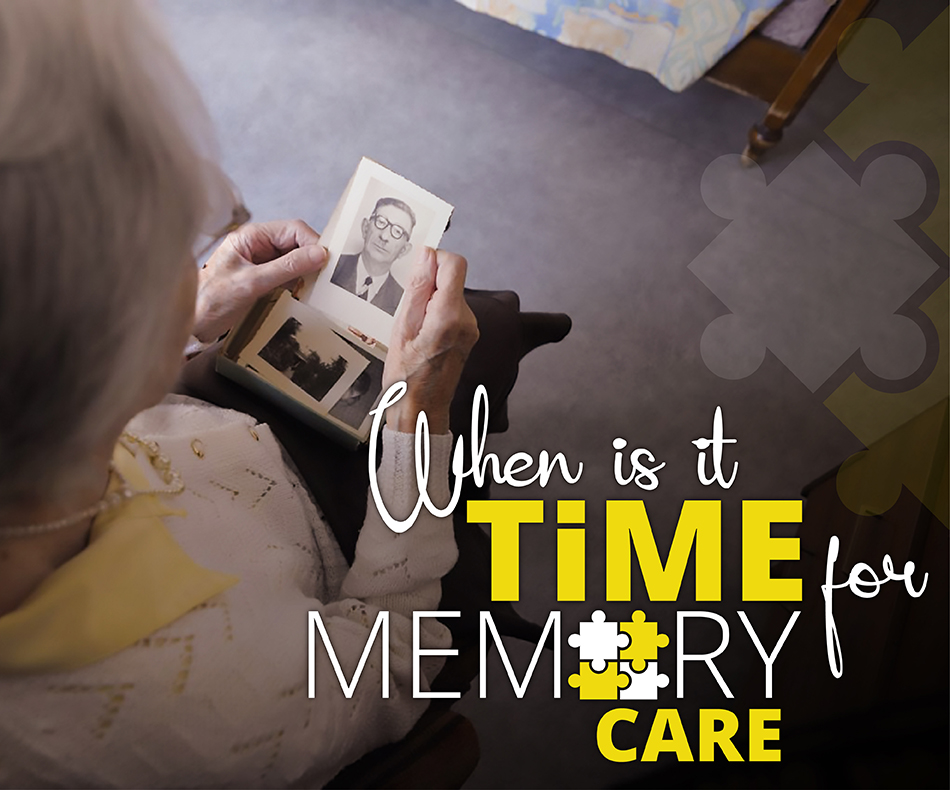
guest author Johnny Kershaws
Determining when memory care is necessary for a loved one's well-being can be challenging. People may face changes in their mental abilities as they age, necessitating more support and help. Memory care provides specialized support and activities designed specifically for those with cognitive impairments such as dementia and Alzheimer's. While deciding to transition a loved one can be difficult, it is essential to recognize when their needs have grown beyond what can be provided at home.
What is a memory care facility?
A memory care community is a particular type of residence that provides specialized support for individuals living with Alzheimer’s disease, dementia, or other forms of cognitive impairment. Memory care facilities for seniors with Alzheimer’s are designed to meet the unique needs of their residents, providing a secure environment where they can receive personalized attention and assistance in performing activities of daily living. In addition to providing physical and medical attention, memory care facilities offer emotional support and activities that help residents maintain their independence and quality of life.
Warning signs that memory care might be necessary
When it comes to signs of needing memory care, certain behaviors and changes may indicate the need for more specialized care. If an individual is experiencing any of the following signs for an extended period, it may be time to seek out a memory-care program:
Forgetting familiar or easily remembered information
Forgetting familiar or easily remembered information is a vital sign that memory care may be necessary. This could include forgetting the names of close friends and family members, places they’ve been before, how to complete everyday tasks, or even forgetting their names.
Struggling with day-to-day tasks
Struggling with day-to-day tasks is another sign that memory care may be needed. This could include difficulty getting dressed, basic hygiene such as brushing teeth or combing hair, having trouble preparing meals, and confusion with medications.
Disorientation and Confusion
Disorientation and confusion can also indicate that memory care may be needed. This could include needing clarification about the time of day, location, or even their current place in life. It might also need help understanding directions or conversations.
Changes in Personality and Mood
Changes in personality and mood can also signify that memory care may be necessary. This could include becoming easily frustrated, irritable, disoriented with the current situation, or having difficulty controlling emotions. It might also include apathy and withdrawal from previously enjoyed activities or social interactions.
Neglect personal hygiene and housekeeping
Neglecting personal hygiene and housekeeping tasks is another sign that memory care may be necessary. This could include forgetting to shower or bathe, not dressing appropriately for the weather or situation, and leaving laundry and dishes undone. It could also mean failing to take medications or having difficulty preparing meals.
A decline in physical health
A decline in physical health can also indicate that more specialized care is needed. This could include increased falls, difficulties with coordination, and weight loss due to forgetting to eat or not understanding how to feed oneself. It might also include changes in sleeping patterns or difficulty managing bathroom use.
Unsafe at Home
If an individual exhibits any of the above signs and is no longer safe at home, it may be time to consider memory care. This could include leaving stoves on or forgetting to turn off appliances, wandering away from home, not remembering how to get back home, or even becoming a danger to themselves or others.
Consider a memory care program if signs are exhibited for an extended period. Memory Care programs specialize in creating safe and nurturing environments that provide the best quality of life while helping individuals manage their memory loss. These programs also offer specialized activities, treatments, and therapies to provide individuals with ongoing care. With the right program and care, individuals can live life with dignity.
What to look for in a memory care facility
When searching for a memory care facility, it is essential to consider the needs and preferences of the individual needing care. Finding a facility with a setting designed especially for people with Alzheimer's or other types of dementia is essential. It is also helpful to research whether the memory care facility provides various activities to stimulate cognitive functioning and social engagement. Such activities include art classes, music programs, reminiscence therapy, exercise classes, and other engaging experiences.In addition to activity programming for the residents, it is essential to look into the staff-to-resident ratio of the facility. It is best practice for memory care facilities to provide a staff-to-resident ratio of at least 1:8.
When choosing a memory care facility, it is important to consider the security measures in place. These may include secure entrances and exits, motion detectors, alarms, and other safety features. It is also essential to look for a facility that offers specialized training for staff members on topics related to dementia care.
Financial Considerations When Choosing Memory Care
When choosing memory care for a loved one, financial considerations should be considered. Memory care can be expensive, and not all families can afford the care their loved ones need. To ensure you select the suitable memory care facility and get the best possible value for your money, there are a few main factors to consider.
First, determine how much you can expect to pay for memory care. Different facilities will offer different levels of care and services at extra costs. Find out what services are included in the cost and what other charges might be added. It’s also important to compare prices among different facilities to ensure you get the best value for your money.
Suppose you qualify for any special discounts or assistance programs that might be offered to help make memory care more reasonable. In that case, that is another crucial financial factor to consider. When deciding where to place your loved one, finding out if a Medicaid waiver program is available in your state is vital since many offer financial support to people needing memory care. While it's not always simple to forecast how much the costs will be over time, it's also crucial to consider the long-term cost of memory care. For a limited time, some facilities may provide lower rates, but at a later point, they may raise the price. Before committing, ensure you know all the expenses and fees related to memory care.
The final thought
There is no simple solution to the question of when to move a loved one into memory care. Ultimately, consider the benefits and drawbacks of several options and select the one that best meets their requirements. When making this challenging choice, it's necessary to consider variables including safety, comfort level, affordability, and quality of life. Deciding to discuss the topic with a reputable healthcare professional is also beneficial. Whatever you choose, remember that your primary concern is always giving your loved one the most excellent care and support possible. You can locate the ideal residence for your loved one with information and investigation.
++++++++++++++++++++++++++++++++++++++++
Related Episodes:



